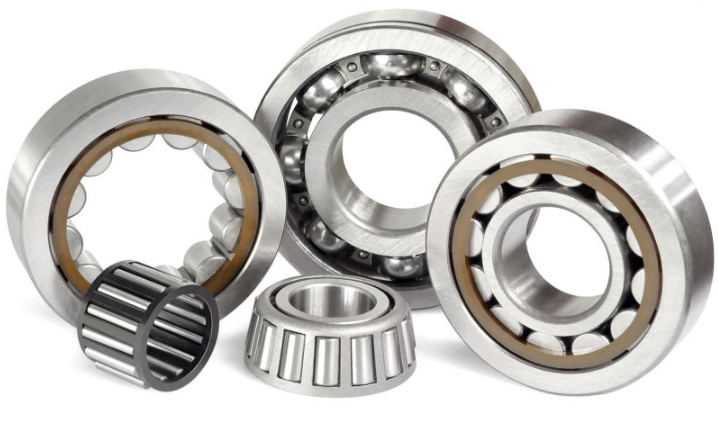Ball Bearings in Agriculture
The agricultural industry is one of the biggest industrial uses for ball bearings. They are necessary for almost every component of the agricultural process, and as they have specific environmental challenges, most manufacturers offer a specific category of agricultural bearings.
Agricultural Bearings

These are bearings designed to withstand strenuous and difficult conditions; agricultural environments feature high exposure to dirt, dust, mud, high temperatures, chemicals from pesticide and herbicide, and long continuous operation. As such, agricultural bearings are engineered with proper sealing and low maintenance requirements; in other words, the lubrication does not need to be replaced frequently, so that the bearing is not removed and re-installed often. They usually are treated with a special coating to protect against corrosion and deterioration. These bearings also typically have relatively high load capacities, as they are often used in heavy equipment with great forces acting upon them. The most important factor within an agricultural bearing is reliability, as the industry is heavily relied upon to provide consistent and timely service for an entire population; resources cannot be wasted due to faulty equipment.
Tractors and Machinery
One of the most important uses for ball bearings in the agricultural industry is in tractors. Just as with other vehicles like cars and buses, tractors use a multitude of bearings in their construction, such as in the engine, transmission, and of course, the wheels. They use a variety of ball bearing types, such as deep groove and angular contact ball bearings. Unlike other vehicles, however, tractors are subject to messy conditions, which require effective bearing seals, and are extremely heavy, requiring bearings with high load capacities. Additionally, tractors need to cover vast fields on large production farms, meaning they may be used for hours on end.
Tractors are the primary machines in the agricultural process. They are used in seed planting, field cultivation, spreading fertilizers, and applying chemicals such as pesticides. They assist in using a wide range of machinery in each of these processes. During soil cultivation, they allow for the use of cultivators, plows, cultipackers, harrows, rollers, subsoilers, and strip tills. In planting, they are used with trowels, seed drills, and planters. In fertilizing and pest control, they power sprayers and manure spreaders. In the hay making process, tractors can pull bale lifters, bale wrappers, hay rakes, and self-loading wagons. Finally, in harvesting, they aid in the use of harvesters, swathers, cotton pickers, rakes, grain carts, and mowers. Some of these machines may also use ball bearings themselves, and there are other types of machinery used in agriculture that also rely on bearings. Equipment such as conveyor belts, wagons, rice hullers, bulk tanks, milking machines, and irrigation systems are also a vital part of the agricultural process requiring the use of ball bearings.
As ball bearings are widely used in agriculture, their use continues throughout the entire food production process, including processing and packaging and transportation. It is clear to see that ball bearings are a vital component in creating the food products we eat on a daily basis.
